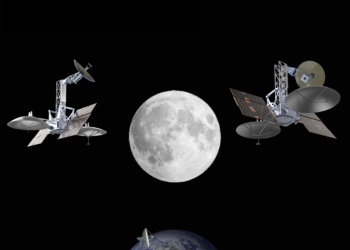Athena rocket returns to serve small-sat sector
Lockheed Martin and Alliant TechSystems (ATK) have teamed up to resurrect the Athena rocket and offer launch services to the government and commercial markets from 2012 onwards.
The new rocket, based on the Athena I and II models, will be used to launch…
Lockheed Martin and Alliant TechSystems (ATK) have teamed up to resurrect the Athena rocket and offer launch services to the government and commercial markets from 2012 onwards.
The new rocket, based on the Athena I and II models, will be used to launch small satellites to a wide range of orbits. Athena Ic is a two-stage rocket and Athena IIc is three-stage, and both incorporate new Castor 30 upper stage motors have been developed and ground-tested by ATK.
Athena IIc is capable of carrying payloads up 1712kg into low earth orbit.
The first Athena rockets flew seven times between 1995 and 2001, including the launch of NASA’s Lunar Prospector mission in 1998. The line was discontinued due to a lack of demand for small satellite launches.
Now that the small satellite sector is growing at an increasingly rapid rate, Lockheed Martin and ATK have chosen to bring the launcher back.
“The Athena launch vehicle family offers low-risk, reliable launch services at an affordable price,” said John Karas, vice president and general manager, Human Space Flight, Lockheed Martin Space Systems Company. “Athena combines both companies’ heritage and expertise in launch systems, and makes key system upgrades to provide an enhanced product, skill set and performance capabilities to meet market needs.”
In the US market, Athena will compete with the SpaceX Falcon 1 and Orbital Science’s Taurus and Minotaur launch vehicles.
“The new Athena family will fill an industry need for lift capability in this payload range,” said Scott Lehr, ATK’s vice president and general manager of strategic and commercial systems. “There is a growing need for responsive launch capabilities to serve the Department of Defense, NASA and other customer requirements.”








